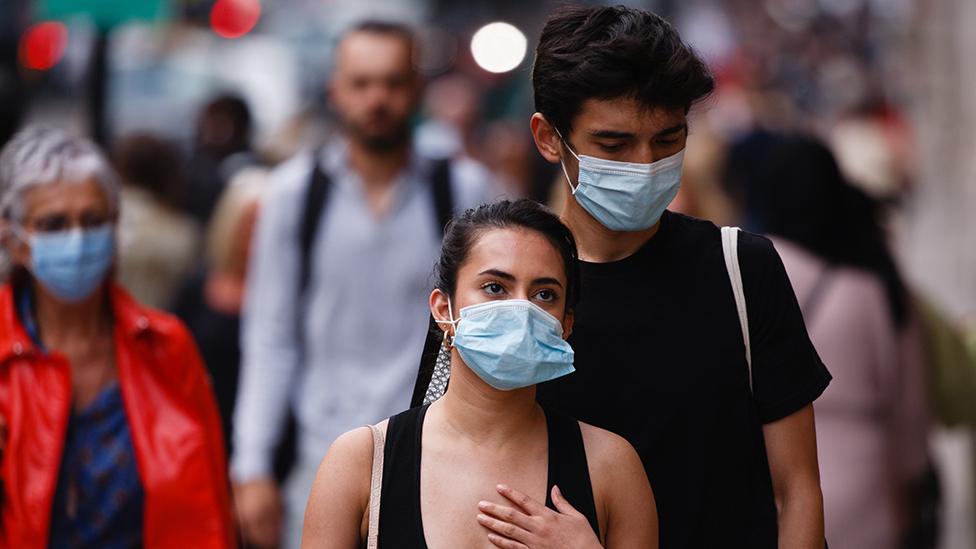Covid: Post-furlough unemployment 'hits young and ethnic minorities'
- Published

Young and ethnic minority workers were more likely to be made unemployed post-furlough, according to a new report.
A survey of about 6,000 adults by the Resolution Foundation found 19% of 18-24 year olds who were furloughed during lockdown were unemployed in September.
For black, Asian and minority ethnic workers the figure was 22%, compared to 9% for the general population.
The Treasury said its wage support schemes had helped to protect millions of jobs.
Speaking on the BBC's Today programme, the Resolution Foundation president, former government minister Lord Willetts, said the group's research findings were grim.
"Compared with previous recessions, the real slowdown is in the number of new jobs that people are moving into," he said.
"Once you become unemployed, finding new employment looks like it's even worse than it was after the financial crash."
He said young people were concentrated in sectors which had been worst affected by the pandemic such as hospitality and retail, while those who had lost their jobs had been faced with very few vacancies when looking for a new role.
The government's Job Retention Scheme initially covered up to 80% of an individual's wages if they were placed on furlough and unable to work.
But Chancellor Rishi Sunak began winding down the scheme from September and it will be replaced with the less generous Job Support Scheme next month.
The think tank's report found that while more than half of those who had been furloughed had returned to work, a third were still on full or partial furlough last month.
Only 43% of those who had lost their jobs since March had found new work by September.
For young people the figure fell to 33% and for those in hard-hit sectors like hospitality and leisure it was 36%.
Kathleen Henehan, a researcher at the think tank, said: "The first eight months of the Covid crisis have been marked by an almighty economic shock and unprecedented support that has cushioned the impact in terms of people's livelihoods.
"But the true nature of Britain's jobs crisis is starting to reveal itself."
"Worryingly, fewer than half of those who have lost their jobs during the pandemic have been able to find work since," she added.
"This suggests that even if the public health crisis recedes in a few months' time, Britain's jobs crisis will be with us for far longer."
The Treasury defended its response, highlighting initiatives such as the "kickstart scheme", which subsidises work placements for young people.
A spokeswoman said: "We're doing everything we can to ensure our coronavirus support reaches those who need it the most, across all backgrounds.
"Our wage support schemes, loans and other measures have helped protect millions of jobs across the country through this crisis."
- Published15 September 2020

- Published16 November 2021

- Published29 September 2020

- Published28 September 2020

- Published9 October 2020
